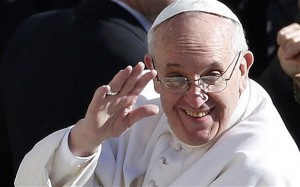The Weekly Francis is a compilation of the Holy Father’s writings, speeches, etc., which I also cross-post on Jimmy Akin’s blog.
This version of The Weekly Francis covers material released in the last week, from 30 March 2024 to 4 April 2024.
General Audiences
Homilies
Messages
Regina Caeli
Speeches
- 4 April 2024 – Audience with the communities of the Pius Latin American, Pius Brazilian and Mexican Colleges
- 4 April 2024 – To the Participants in the Colloquium promoted by the Dicastery for Interreligious Dialogue
Papal Instagram




